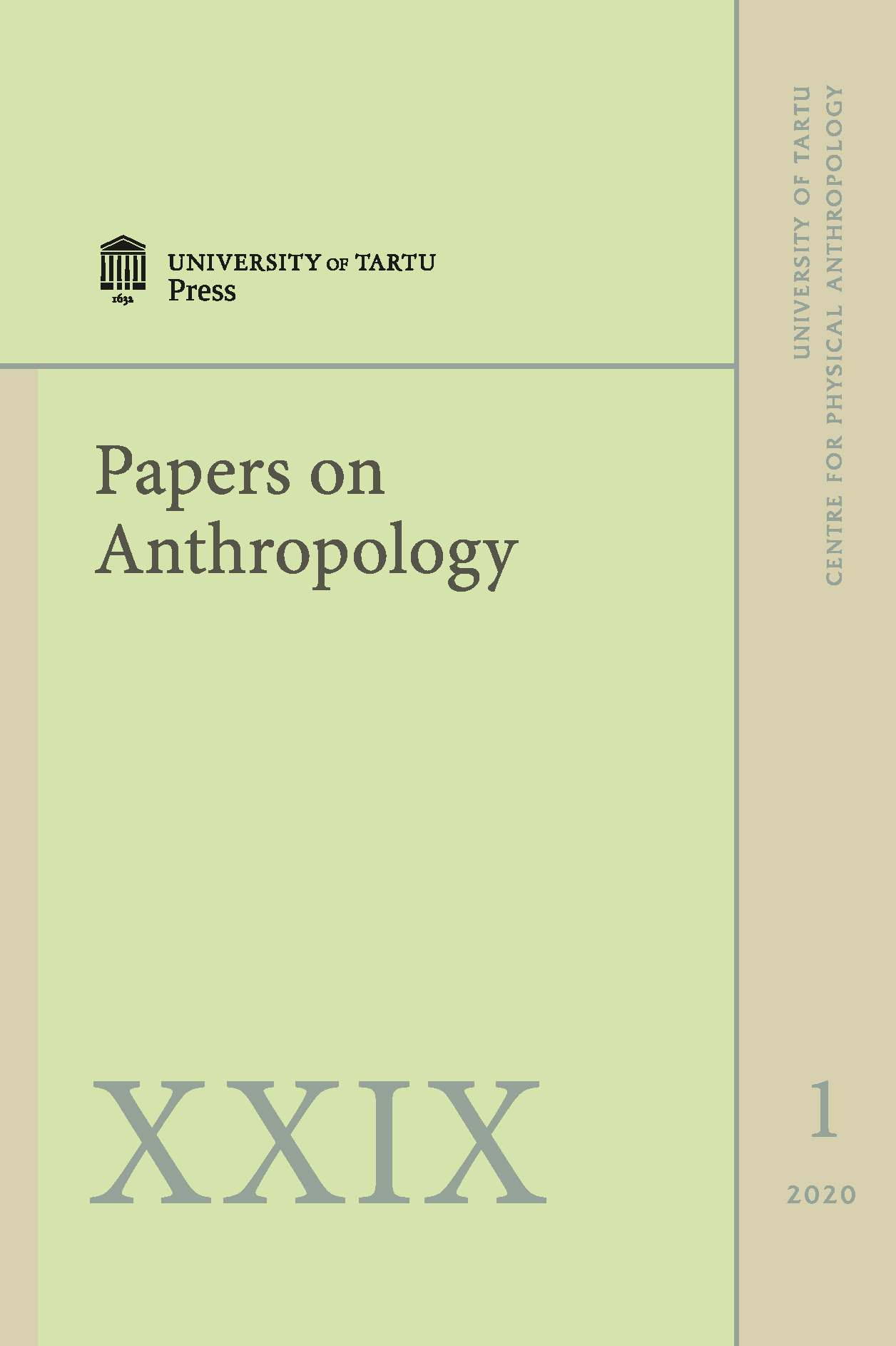Change of hydration parameters in moderate altitude: measurements in healthy volunteers by means of bioelectric impedance analysis
DOI:
https://doi.org/10.12697/poa.2020.29.1.03Keywords:
bioelectric impedance analysis, mountain medicine, hydration, healthy volunteersAbstract
During residence in high mountain regions, the human water hydration status changes and, from the height of approximately 3000 m above sea level, is associated with the risk of mountain sickness. The present investigation should assess this phenomenon in moderate height (1300–2300 m above sea level) after a residence time of approximately one week by means of bioelectric impedance analysis (BIA). 50 volunteers, attendees of a sports medicine congress (33 men, 17 women), agreed to enter the study. All participants underwent BIA measurements initially and after one week. Apart from the basic characteristics – resistance (resistor, R) and capacitor resistor (reactance, Xc) – derived characteristics, such as total body water (TBW), body cell mass (BCM) and extra-cellular mass (ECM) were of interest. Significant changes after the stay in moderate altitude were not verified. As resistance decreased in both men and women, extracellular hydration was probably stimulated. Altogether, the study shows that an approximately one-week stay had no substantial influence on the BIA parameters in moderate altitude. In this regard, additional investigations in high altitudes or studies with longer duration of stay should be encouraged.

